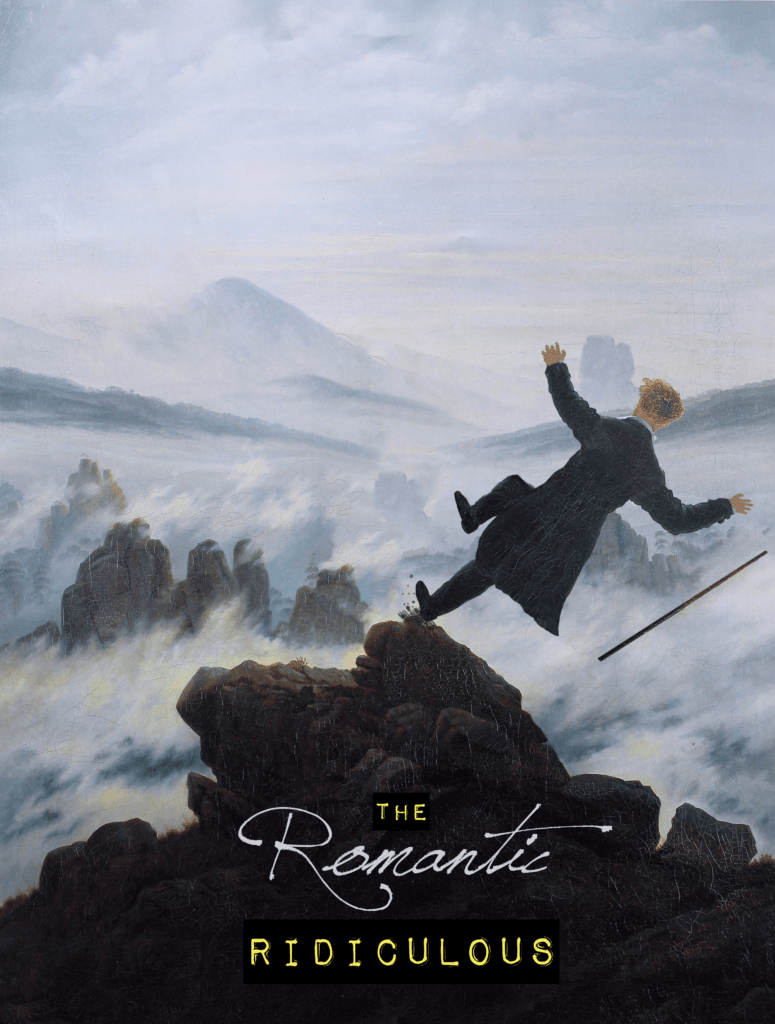This project aims to shift Romantic Studies from the sublime to the ridiculous. In asking ‘Is Romanticism ridiculous?’ I do not seek to dismiss either the period or its literature as meaningless or unimportant, but to ask instead whether an alternative approach to its aesthetics categories can shift the specialism from a still dominant focus on a narrow canon of individuals to a joyful celebration of collectivity and collaboration.
Building on the work of German philosopher Jean Paul Richter, I define the ridiculous as a comic juxtaposition of perspectives, based on an initial failure of understanding. Richter argues that our sense of the ridiculous originates in early interactions with nature, triggering a kind of counter-sublime which reorients the relationship between individuals, imagination, and landscape, focusing on communal responses to the natural world above individual takes. For Richter, the ridiculous is most clearly seen in social interactions, provoking laughter, community, and collaboration between groups of people.

This project adopts the ridiculous as a lens through which to read Romantic-period engagements with the natural and social worlds, shifting the emphasis away from encounters between an individual genius and sublime scene to an aesthetic perspective which privileges joyful group dynamics promising moral and spiritual rejuvenation, especially in relation to children and childhood.
Throughout the project, Samuel Taylor Coleridge recurs as a philosopher responding to Richter’s ideas in his own lecture on wit and humour, as a writer of the ridiculous in relation to nature, society, and childhood, and as a figure of the ridiculous in both Romantic-period and later satires. The project draws on current debates about aesthetics, particularly Sianne Ngai’s work on aesthetic experiences with a lesser affective charge than the sublime, to foreground the ridiculous as an alternative approach to Romantic Studies, originating within Romanticism itself, and reconfiguring it from individual genius to collective joy.
